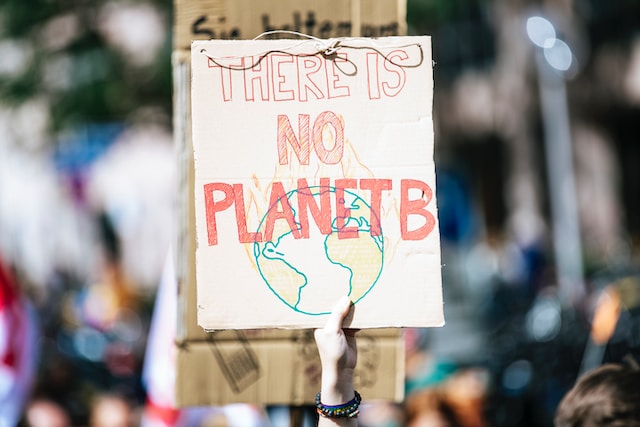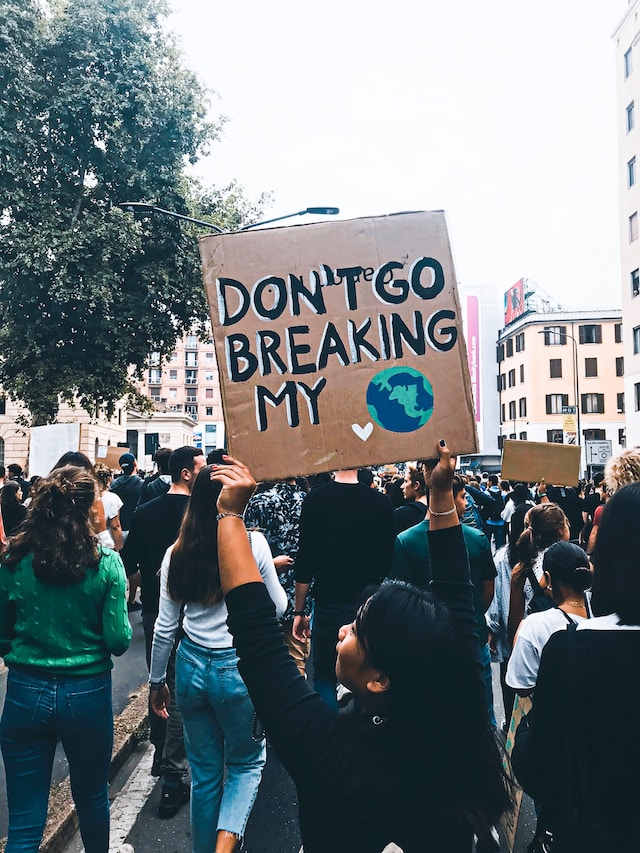
When it comes to climate change, there is no doubt that government policies and politics play a crucial role in shaping the trajectory of our planet’s future. Some governments are proactive in taking steps to mitigate the effects of climate change, while others remain passive or even resistant to change.
In this time of great urgency, climate change policy and politics have become a hotly debated topic. Some argue that stricter policies are needed to reduce emissions and prevent further damage to the planet. Others argue that these regulations will harm the economy and compromise national security.
Yet, despite the disagreements, it is clear that the consequences of inaction far outweigh any potential short-term economic gain. Every day, our planet is choked by pollutants and carbon emissions, from the factories to the power plants, to the millions of cars on our roads.
Thankfully, there are governments around the world who are stepping up to the challenge. They are investing in renewable energy, implementing carbon taxes, and creating incentives for businesses to reduce their emissions. These actions, while not perfect, are moving us in the right direction.
International Climate Agreements
International climate agreements are crucial frameworks established among nations to address the global challenge of climate change. One notable example is the Paris Agreement, adopted in 2015 during the 21st session of the United Nations Framework Convention on Climate Change (UNFCCC). The Paris Agreement has been ratified by nearly all countries, making it a comprehensive and widely supported international climate accord.

The agreement aims to limit global warming to well below 2 degrees Celsius above pre-industrial levels and to pursue efforts to limit the temperature increase to 1.5 degrees Celsius. Key goals and commitments of the agreement include:
- Nationally Determined Contributions (NDCs): Each country sets its own climate action targets, known as NDCs, outlining its efforts to reduce greenhouse gas emissions, adapt to the impacts of climate change, and provide support to developing countries.
- Global Stocktake: The agreement establishes a process for reviewing and assessing collective progress towards the agreement’s goals every five years, known as the Global Stocktake.
- Financial support: Developed countries are encouraged to provide financial assistance to developing nations to support their climate mitigation and adaptation efforts.
- Technology transfer and capacity building: The agreement promotes the transfer of environmentally sound technologies and capacity-building support to developing countries.
Despite the importance and widespread adoption of international climate agreements, several challenges persist in their implementation and monitoring:
- Compliance and Enforcement: Ensuring countries adhere to their commitments can be challenging, as there are no legally binding penalties for non-compliance. The effectiveness of the agreements heavily relies on voluntary compliance.
- Differentiated Responsibilities: Balancing the responsibilities between developed and developing countries remains a challenge. Developing nations often argue for more financial and technological support from developed countries to meet their climate goals.
- Political Will and Changing Administrations: International climate agreements span multiple political cycles, and changes in leadership or political priorities can affect the commitment levels of countries, leading to fluctuations in implementation efforts.
- Data Accuracy and Transparency: Collecting accurate and transparent data on emissions and progress is essential for monitoring the effectiveness of climate agreements. Ensuring consistent and reliable reporting from all countries can be challenging.
- Ambition Gap: Despite progress, the current level of climate action falls short of what is needed to achieve the temperature goals set by the agreements. Bridging the ambition gap and increasing the scale and speed of climate action remains a significant challenge.

Efforts to address these challenges require ongoing international cooperation, dialogue, and commitment from all nations to strengthen implementation mechanisms, enhance transparency, and increase ambition in tackling climate change collectively.
Political Dynamics of Climate Policy
Political ideologies play a significant role in shaping climate policy. Different political perspectives may prioritize various aspects of the climate challenge, leading to divergent policy approaches. Some key influences include:
Conservative and Liberal Perspectives
Conservatives tend to emphasize market-based solutions, minimal government intervention, and economic considerations in climate policy. Liberals often prioritize regulation, international cooperation, and social justice in addressing climate change.
Left-Right Divide
Climate policy can become a polarizing issue along the left-right political spectrum. This divide can impact the level of support, priority, and ambition assigned to climate-related initiatives by different political parties.
Populist Movements
Populist movements can introduce additional complexities, as they often prioritize short-term economic interests and may be skeptical of scientific consensus on climate change.
Interest groups and stakeholders have a significant influence on shaping climate policy by advocating for their specific concerns and priorities. Key actors include:
- Fossil Fuel Industry: Oil, gas, and coal industries have historically exerted influence through lobbying, campaign contributions, and public relations efforts to shape climate policy in ways that align with their economic interests.
- Environmental NGOs: Non-governmental organizations (NGOs) focused on environmental issues play a vital role in advocating for ambitious climate policies, raising public awareness, and holding governments accountable.
- Business and Industry: Companies across sectors have the potential to influence climate policy through their positions, actions, and support for sustainable practices. Some industries may resist regulations, while others may see opportunities in transitioning to a low-carbon economy.
- Indigenous Communities and Social Movements: Indigenous communities and grassroots movements often advocate for climate justice and sustainable practices, influencing policy by highlighting the impacts of climate change on vulnerable populations and ecosystems.
Public opinion

Public opinion can have a significant impact on government actions related to climate policy. Growing public awareness of climate change and its consequences has led to increased demand for action from governments. Public concern can create political pressure for policymakers to prioritize climate policy and take more ambitious measures.
Governments are responsive to public opinion, particularly during elections. Parties may include climate policy in their platforms or adjust their positions to align with public sentiment on the issue.
Large-scale protests, marches, and social movements focused on climate change can draw attention to the urgency of the issue and influence political decision-making. They can shape public discourse, encourage policy action, and hold governments accountable.
Public opinion, along with the influence of interest groups and stakeholders, can shape the political landscape and determine the level of ambition and commitment of governments in addressing climate change. Governments that align with public sentiment and prioritize climate policy are more likely to enact comprehensive and effective measures to mitigate and adapt to the impacts of climate change.
In the end, climate policy and politics are not just about the environment. They are about our long-term survival as a species. We need to recognize the critical role that governments can play in shaping a sustainable future for ourselves and future generations. And we must hold them accountable for their actions, or lack thereof, every step of the way.


